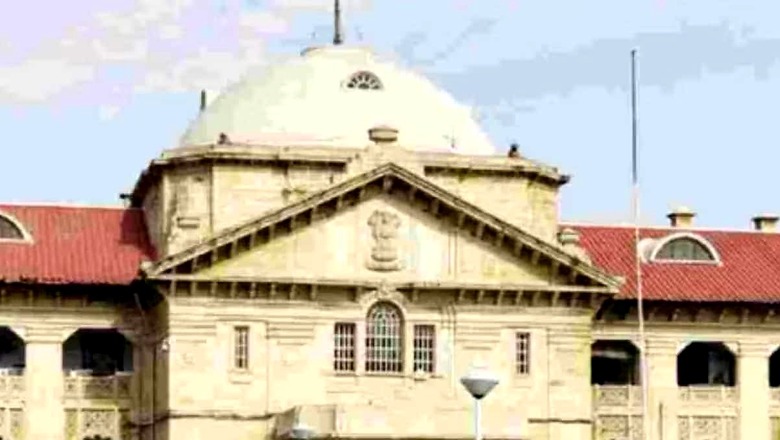
views
The Allahabad High Court recently allowed job appointment of a daughter-in-law of a deceased government employee on “compassionate” grounds, stressing her crucial role in the family. The court observed that a daughter-in-law is also an integral part of the family “same as a daughter”, therefore, she can also avail the benefit of the provision.
A bench of Justices Vivek Kumar Birla and Donadi Ramesh noted the exceptional situation in the case at hand where the son of the deceased government employee was alive, but he had more than 75% disability and was unable to work.
Considering the special circumstances, the court allowed the daughter-in-law to seek “compassionate appointment”.
The daughter-in-law of a deceased class IV government employee filed a writ petition before the high court initially seeking a declaration that Rule 2 (c) (iii) of the Uttar Pradesh Recruitment of Dependents of Government Servant Dying in Harness Rules, 1974 is unconstitutional to the extent it creates a distinction between widowed daughters-in-law and those whose spouses are alive but suffering from incapacity.
The deceased, who was the sole breadwinner of the family, was survived by her son and married daughter who was living with her husband. The son was incapable of earning a livelihood owing to his disability, therefore, the deceased’s daughter-in-law moved an application before the authorities to consider her case for “compassionate appointment” under the U.P. Recruitment of Dependants of Government Servants Dying in Harness Rules, 1974.
However, her application was rejected on the ground that ‘daughter-in-law’ was not included in the definition of ‘family’ under the Rules of 1974.
During the course of the proceedings, the daughter-in-law withdrew her prayer challenging the constitutionally of the Rule of 1974 and only prayed for her compassionate appointment.
The counsel for the daughter-in-law contended that in the definition of family under Rule 2 (c) of the Rules of 1974, all the members of a family are included except the daughter-in-law with surviving husband.
Referring to a full bench judgment of the high court in U.P. Power Corporation, Urban Electricity Transmission Division-II, Allahabad vs. Urmila Devi 2011, he highlighted that in that case, the court considered and held that the widowed daughter in the house of her parents is entitled to consideration for compassionate appointment.
He argued that therefore it was not understandable how a widowed daughter in her father’s house has a better right to claim appointment on a compassionate basis than a daughter-in-law in her father-in-law’s house.
The high court opined that the main purpose of extending the benefit of compassionate appointment to the dependents of a deceased government servant is to relieve the family from distress and destitution on account of death of sole bread earner of the family.
Therefore, taking note of the exceptional situation in the case at hand, the high court held that it required a liberal construction of the meaning under Section 2(c) of the Rules, 1974.
Accordingly, in view of the facts of the case, the court ordered the Joint Commissioner (Karya Palak), Rajya Kar, Prayagraj to reconsider the case and pass appropriate orders.

















Comments
0 comment